- Rethinking Power, Plants, and the Future of Psychedelic Culture - May 9, 2025
- Where Is the Psychedelic Movement Headed Next? - October 15, 2024
- The FDA’s Rejection on MDMA-Assisted Therapy: What is Next for the Psychedelic Movement? - August 16, 2024
- United in Fight and Celebration: The 3rd Indigenous Peoples Union Festival - June 12, 2025
- DEA Under Fire: Inefficiency or Resistance? - January 23, 2025
- Where Is the Psychedelic Movement Headed Next? - October 15, 2024
The FDA’s recent MDMA therapy decision has shaken the psychedelic community, prompting overdue reflection on access, equity, and the commodification of sacred medicines.
*This was given as a keynote speech at Arctic Visions Psychedelic Conference
The psychedelic community was recently struck by the unfortunate news that sounded the alarm for the most enthusiastic of its members. The FDA’s decision on MDMA-assisted therapy took many by surprise, causing waves in the psychedelic universe, which now appears to be a bit shaken and in need of some soul-searching. It seems that we have reached an important crossroads in the debate on the future of psychedelics. However, there is a silver lining. This moment also presents us with a unique opportunity to confront problematic ways the psychedelic universe is evolving and to explore historical perspectives that revolve around its uses and the rights of those who safeguard and protect these sacred medicines.
This moment … presents us with a unique opportunity to confront problematic ways the psychedelic universe is evolving and to explore historical perspectives that revolve around its uses and the rights of those who safeguard and protect these sacred medicines.
We want to use this opportunity to raise a serious and much-needed debate on some of the major tensions, controversies, disparities, inequities, and risks that have risen in the last decades. If those issues are not seriously considered, there is a possibility that the so-called psychedelic renaissance may contribute to unforeseen developments and unwanted outcomes.
After the recent events, it is crucial to assess the current limits of psychedelic science, whose advocates are recognized as leaders of this movement. Much psychedelic science has overemphasized biomedicalization to the detriment of other fields, such as humanities, social sciences, and traditional knowledge. It is also important to discuss the need for inclusion of minorities and marginalized groups, such as Indigenous peoples, people of color, and queer people, if we want to avoid the reproduction of the same disparities, inequalities, and social stigmas of mainstream capitalism.
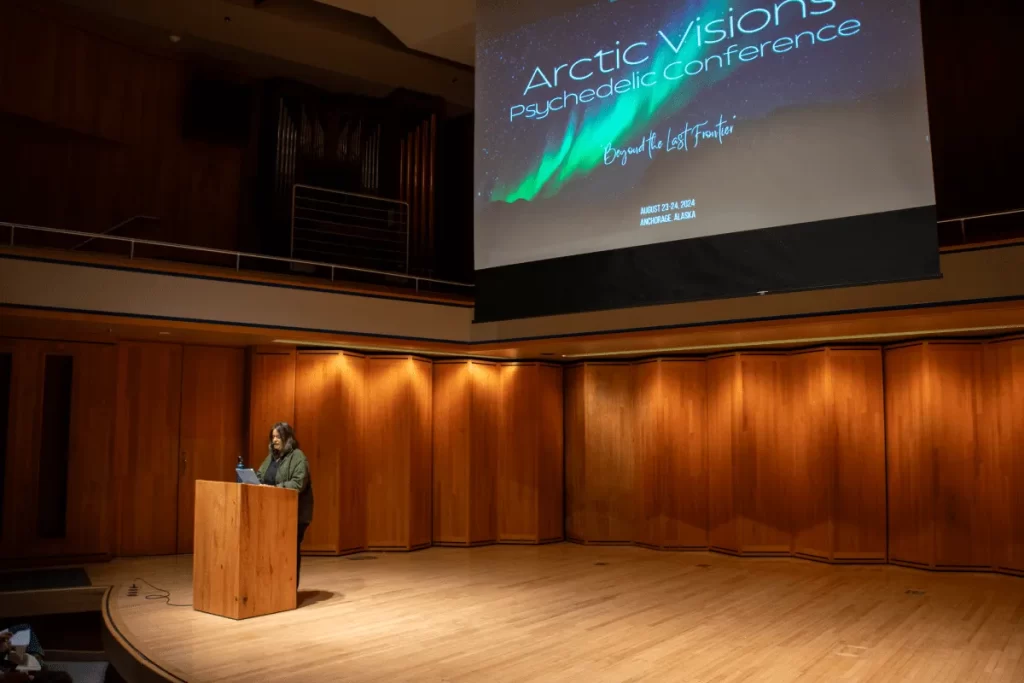
We need to stress options for regulated state access to psychedelics, as well as allowance for religious and traditional uses, which are frequently ignored in blatant human rights violations. We want to further highlight the risk that plant medicines may become one more commodity and to call attention to the environmental burdens that careless expansion could cause. We believe that addressing these important issues can strengthen the psychedelic movement and provide a breath of fresh air for us as we move forward and work to gain much-aspired and needed respect, legitimacy, and integration into larger circles beyond ourselves.
We are making a call for the psychedelic community to engage in an informed collective conversation about the future of the psychedelic movement. It is also a call to avoid the tendencies of both idealization and glorification on the one side, and an unrealistic critique on the other, which can also be considered a form of “lazy” and “easy” activism. We are inviting all for a balanced and unbiased assessment of the contemporary challenges and risks that we face.
It is undeniable that we are witnessing a historic breakthrough in the advancement of research, policymaking, and regulation of psychedelics in many parts of the world.
It is undeniable that we are witnessing a historic breakthrough in the advancement of research, policymaking, and regulation of psychedelics in many parts of the world. In the United States, besides the pending issues with Lykos’ MDMA clinical trials, we have several clinical trials with psilocybin for depression, and LSD and Cybin’s psilocybin analog have received a breakthrough designation for general anxiety disorder and for major depressive disorder, respectively, from the FDA. There is a strong mushroom underground culture, an explosion of psychedelic churches and underground therapists, and a growing buzz around multiple other modalities of psychedelic use. In South America, countries including Peru have recognized the historical and cultural value of the use of ayahuasca as part of its national heritage, and there are organized Indigenous movements in Colombia, Peru, Ecuador, Brazil and other countries promoting a contemporary agenda that links plant medicines to Indigenous rights, the environmental domain and the fight for land demarcation.
There continue to be deep legal hurdles for regulating access to psychedelics, and this is happening in uneven ways throughout the globe. While we lament the challenges that psychedelic science is currently facing, we cannot ignore other major threats that go beyond the scientific realm and have deep impacts on the variety of uses of psychedelics, including plants and fungi species. Despite important efforts for decriminalization and regulation, there are a lot of countries that still actively persecute traditional uses of plant medicines, treating Indigenous peoples and members of ayahuasca minority religions as dangerous criminals and drug traffickers. These tradition-keepers constantly face threats of prison and prosecution for holding their faith and culture. This trend is not a novelty, nor does it seem to be coming to an end soon. There are still many social taboos and prejudices around psychedelics grounded in decades of religious, moral, and cultural dogma, and the regulation of psychedelics involves not only medical and scientific issues but also political, cultural and economic pressures.
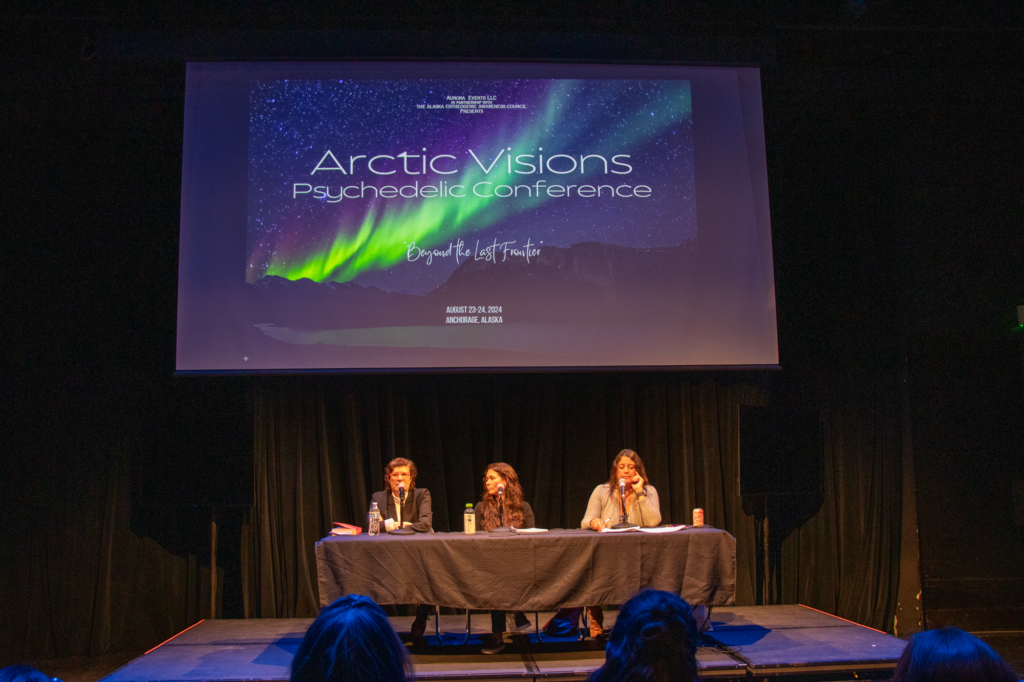
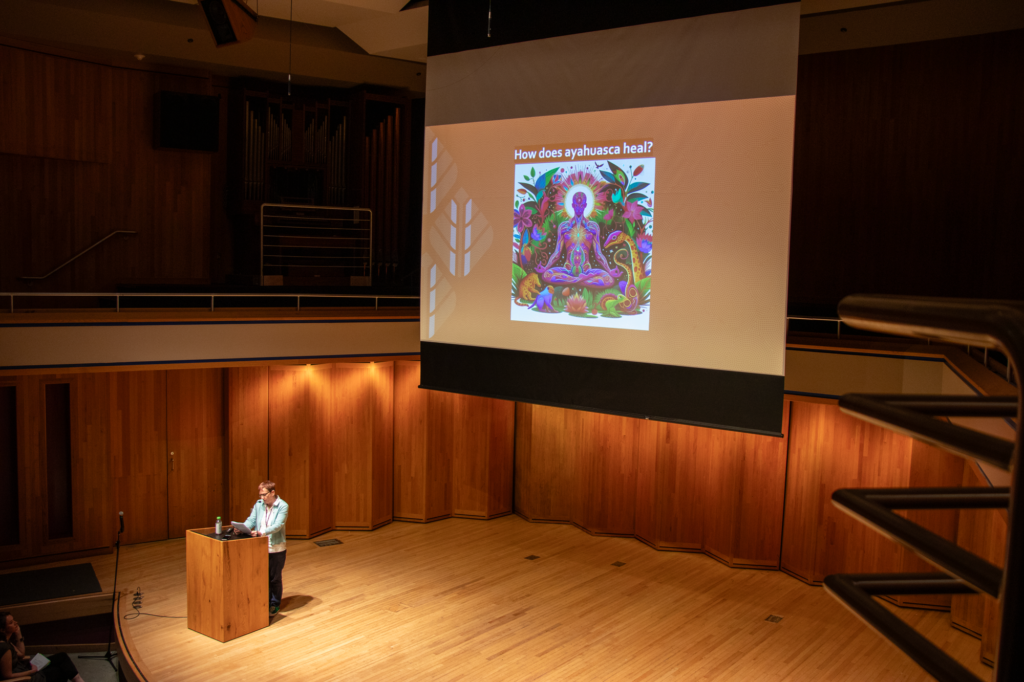

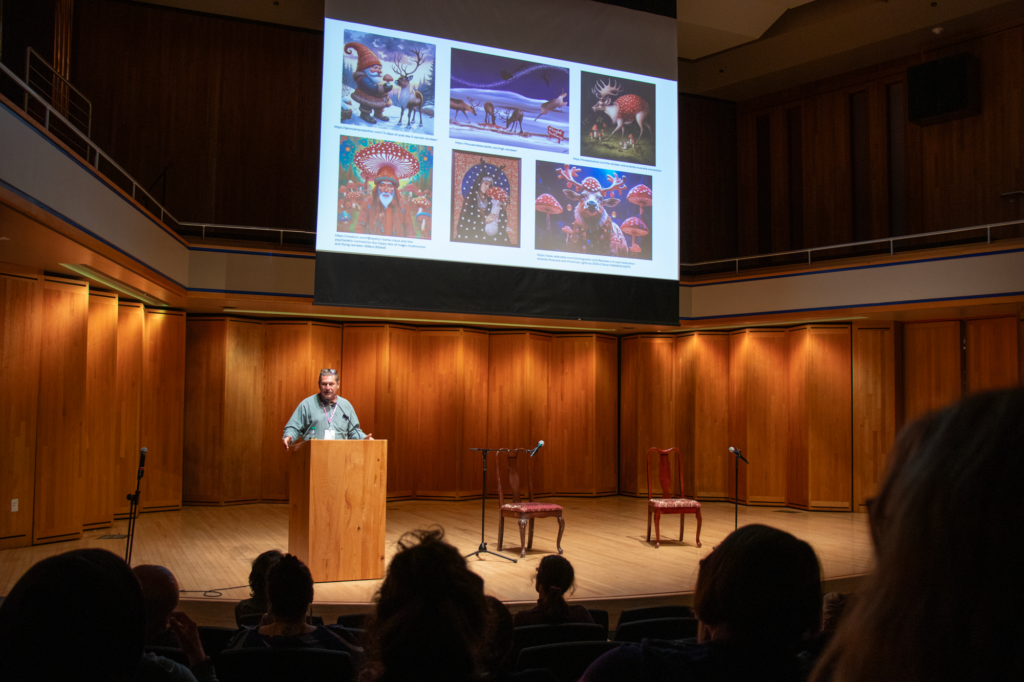
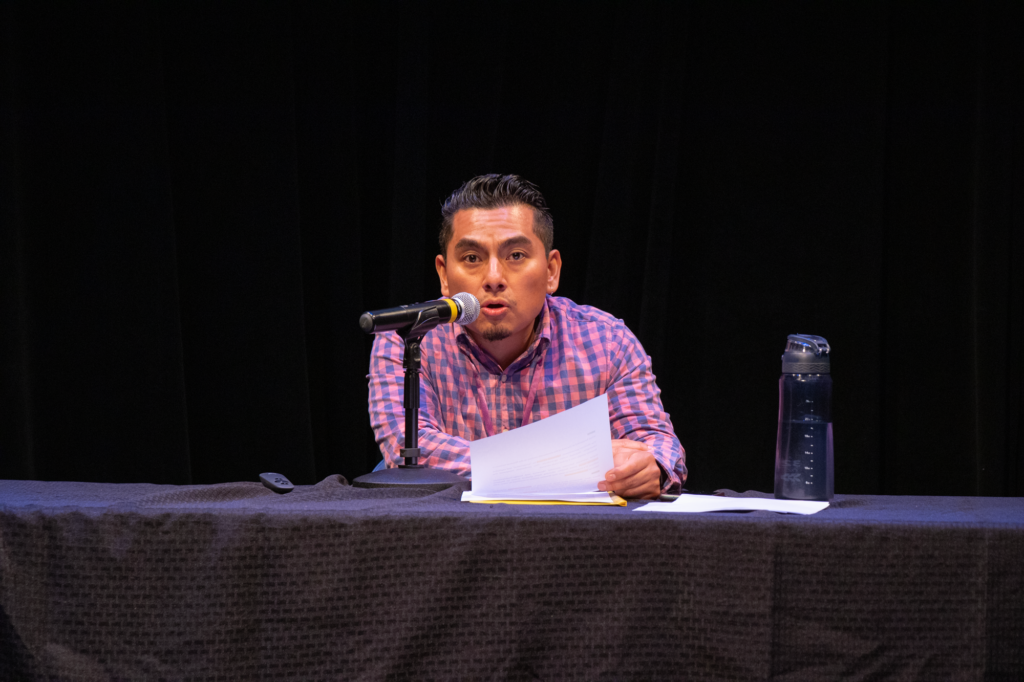
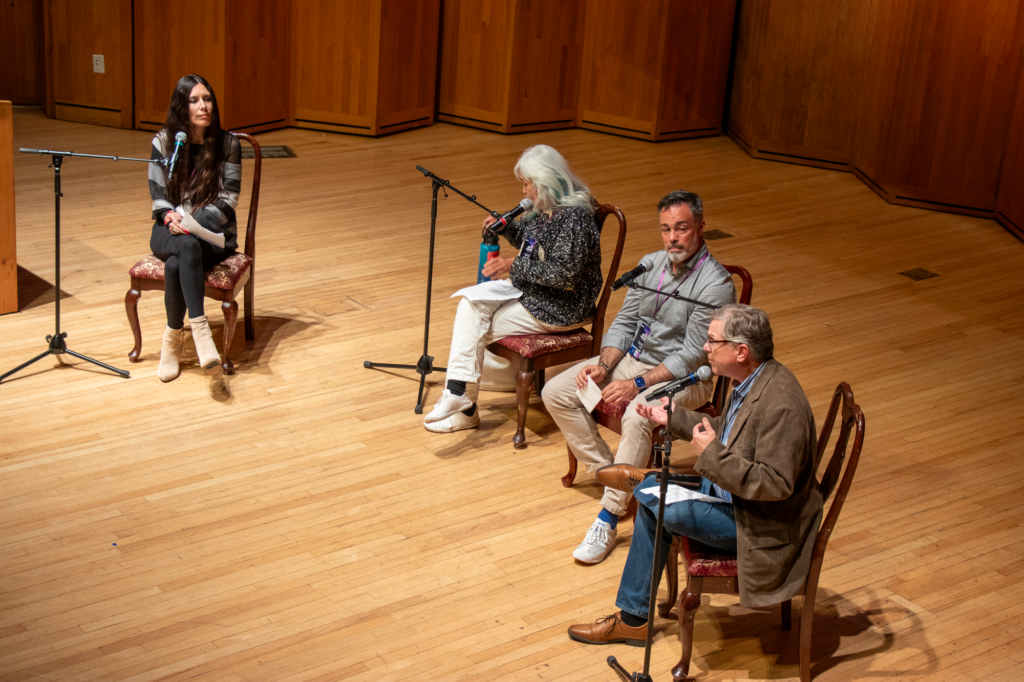
Chacruna at Arctic Visions. Photo Credits: Horacio Guevara.
At this historical moment, it is more necessary than ever to address important questions such as: What are the psychedelic futures we envision? Are the rights of traditional populations being respected? How can we advance the right to use psychedelics outside medicalization? What are the benefits and shortcomings of the medical model? What are the roles of collective shared uses and religious uses of psychedelics? Can we move beyond models like Oregon and Colorado, and what would this look like? How can we advance issues such as access, equity, justice, cultural sensitivity, conservation, reciprocity, ethics, and accountability in the psychedelic movement? How can we balance universal cognitive freedom rights with certain minorities’ views over their autonomy and right to self-determination around their own sacraments and practices? Will academic institutions, regulatory agencies, and for-profit companies continue to attempt to fit psychedelic medicine into the current pharmaceutical-based model of mental health care? Or, can we adapt to accommodate the complexities of psychedelics and their variety of potentially beneficial uses?
As Dr. Jamie Beachy reminds us, and despite its promising results, we cannot ignore that, psychedelic therapy tends to focus primarily on individuals to the detriment of the collective, failing to address structural forms of oppression and stigmatization. In addition to healing individuals, we also advocate for a new understanding of distress and its forms of resolution within a broader cultural and ecological context. Psychedelic therapy is strongest when accompanied by community-based support networks, and when therapists know the community well and have cultivated meaningful relationships and deep cultural knowledge.
“Care” must address systemic forms of oppression, inequalities, and prejudices that contribute to health problems characteristic of modernity.
The notion of care cannot be restricted to the sole purview of psychotherapy. “Care” must address systemic forms of oppression, inequalities, and prejudices that contribute to health problems characteristic of modernity. Although individual care is indispensable, other factors that contribute to psychological distress need to be confronted equally. If we fail to ground psychotherapy in this critical perspective, healing endeavors could in some cases support forms of oppression rather than addressing and challenging such systems.
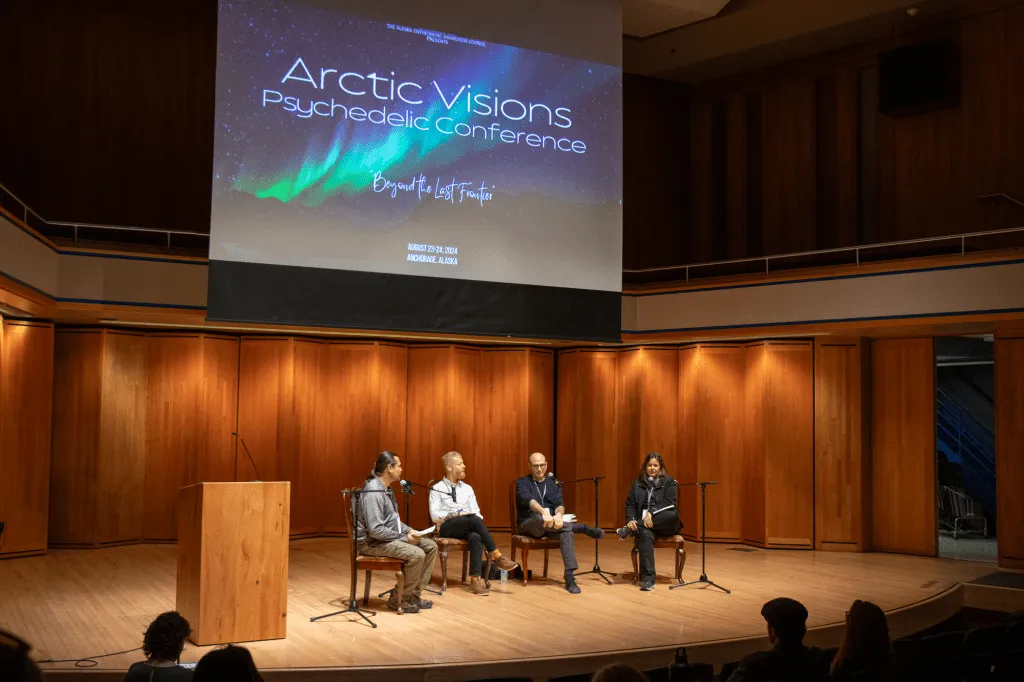
We want to emphasize that support for the important research done by psychedelic science cannot come at the detriment of traditional forms of knowledge, as well as the living and diverse psychedelic traditions and cultures that gave birth to a large part of this science. We must ensure that all voices are heard, especially those of Indigenous peoples and other often marginalized groups.
Indigenous cultures and religious traditions have been telling us about the therapeutic potential of these plants and fungi. It is not a surprise that scientific research is discovering healing properties of psilocybin mushrooms, peyote, iboga, and ayahuasca, and it is not an accident that there are some promising results and potential benefits. The advances in clinical research are critical to the legitimacy of psychedelics. However, relying exclusively on biomedical knowledge to guide real-world practice of psychedelic therapies without drawing on other forms of knowledge may limit potential benefits – or even increase risks – for recipients. It is also equally important to acknowledge that science is not the only path towards legitimation. We respect and that these traditions have historical and cultural legitimacy in and of themselves. Their legacies and lineages have been passed through centuries and we can learn much from their successful formal and informal mechanisms of control, and their proven ability for self-regulation. These issues are not only epistemological and ethical in nature. There are real-world implications if Indigenous and spiritual knowledge are excluded from psychedelic science.
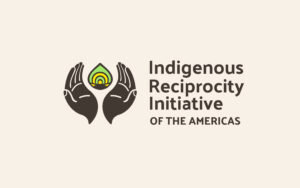
Discover the Indigenous Reciprocity Initiative of the Americas
There is an urgent need for a balanced dialogue with more voices at the table sharing more nuanced views. Again, we must seriously address the question of access and the inclusion of minorities in this movement. If this expansion occurs without providing access to marginalized groups, excluding populations that require special care, it will inevitably lead to the same inequities seen in our healthcare systems. This also involves efforts to lower costs and provide a more accessible means of treatment. But importantly, without focusing on education, harm reduction, and community-focused initiatives, such scientific advances will not be fully and safely translated into societal benefit.
For some, the pace of change seems too fast. The buzz around mainstreaming leads to the idea that you have to “reach as many people as fast as possible.” Let’s examine the sense of “urgency” present in some of the current rhetoric and pace of the psychedelic movement. There is no urgency for mainstreaming psychedelics in traditional contexts, especially given the social, political, and environmental catastrophes many of these communities are facing at alarming rates.
We need a clear understanding that psychedelics alone cannot fix deep structural and political issues, nor do they have the power to suppress other forms of violence and oppression.
We need a clear understanding that psychedelics alone cannot fix deep structural and political issues, nor do they have the power to suppress other forms of violence and oppression. As our dear friend, Indigenous activist Daira Tukano, puts it, regarding the glorification of ayahuasca vine, “That is a lot of pressure to put on a simple little plant.”
If we are not aware, psychedelics can become an elite movement for the few, or an “industry.” We are already seeing the harms of the commodification and tokenization of ayahuasca. There have been increasing cases of retreats and treatment centers in Latin America that disregard the cultural context in these regions, trying to impose their own cultural and economic practices, appropriating traditional knowledge, and sometimes falsifying Indigenous identities to legitimize their enterprises. There is a real danger that the psychedelic renaissance could become another capitalist endeavor that reinforces colonial practices and deepens social and economic inequities. If “scaling” and “mainstreaming” are not planned, this movement will only reproduce the status quo, with advantages, power, and money accumulated only in the hands of a few.
The lack of attention to education, harm reduction, and ethics can also lead to the proliferation of fake experts, opportunists, charlatans, cult leaders, potential abuse, greedy investors and commodification. The expertise in offering these substances takes years, if not a lifetime, to cultivate. These are developed over time, and are absolutely essential in the context of psychedelics. How can we mainstream things fast and urgently without investing properly in training, education, harm reduction, community, and initiation? And where is the funding for that? It’s important to note also that medicalization receives millions of dollars, while grassroots efforts, which cover crucial areas of this movement, continue to be incredibly underfunded.
Furthermore, we can’t forget to ask ourselves: are there enough natural resources to supply the growing global demand for psychedelic plant medicines? It is important to focus on the environmental impacts of the world ayahuasca diaspora, as well as the environmental risks to peyote both in Mexico and the US, and to mushrooms in places like Huautla de Jimenez in the Oaxacan mountains.
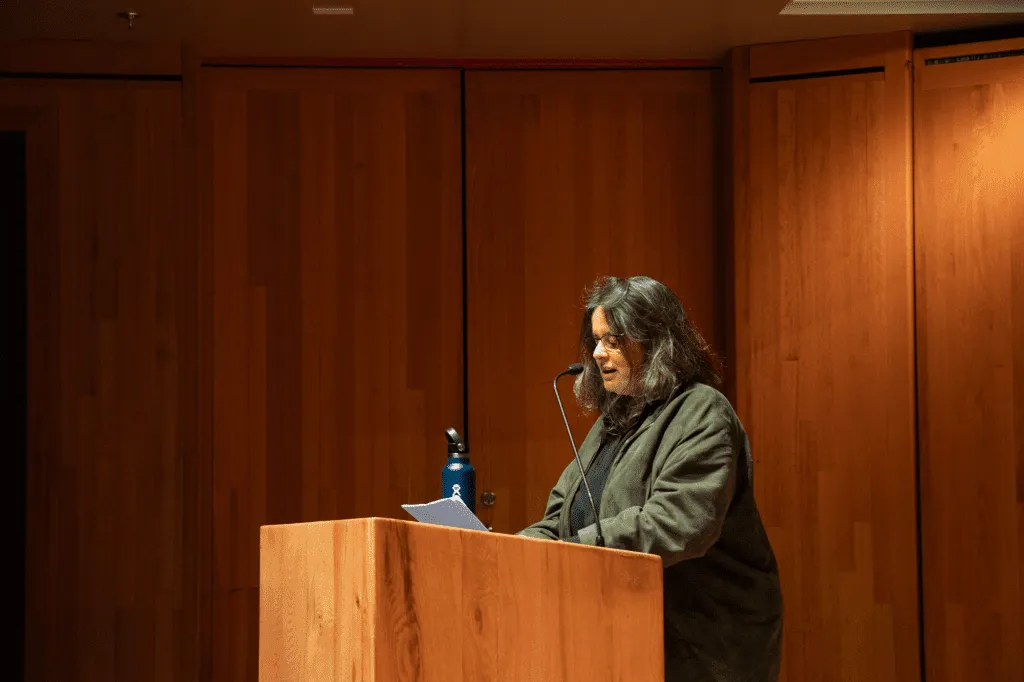
Skeptical of this renaissance, Native Americans have asked the psychedelic movement to stay out of regulation of peyote. And we have witnessed how the Western fervor with magic mushrooms has created many paradoxes in the original communities it came from, as we will hear in the presentation of our colleague Dr. Osiris García. Things get worse if we consider the impacts of deforestation of the Amazon rainforest in the last decades. In Brazil alone, approximately 3 million acres of Amazonian rainforest are cut annually, at a rate that has increased over the years. In Peru, there are complaints that the ayahuasca vine has disappeared from the surroundings of numerous villages and accessible areas of the forest, obligating gatherers to travel deeper into the forest to find the plant. In Mexico and North America, researchers are addressing the environmental impacts of peyote extraction. This devastation is fueled by problematic development projects like mining and mono-agriculture, as well as increased global consumption of the plant. The romanticization of the current landscape of the psychedelic renaissance contributes to raising inequalities and the gaps between North and South. It also contributes to the silencing of minority voices, especially of Indigenous people, ignoring that their historical legacies within the psychedelic movement have consistently been marked by colonization, subjugation, and extermination.
Regardless of the FDA’s decision, the fact is that medicines from the forests and deserts have already spread all over the world, and people are hungry for their healing, beauty, and wisdom. But this healing cannot come at the cost of the traditions and cultures that have fought to keep these practices alive.
Regardless of the FDA’s decision, the fact is that medicines from the forests and deserts have already spread all over the world, and people are hungry for their healing, beauty, and wisdom. But this healing cannot come at the cost of the traditions and cultures that have fought to keep these practices alive. The psychedelic movement as a whole has to take a step back and reassess its priorities, its goals, and seriously consider its impacts. And the challenges are not only internal. We also have to face, at the same time, the power of national governments, drug agencies, and other regulatory bodies that try to keep people from continuing to use these medicines in therapeutic, religious, and social settings. We have to understand that the real world extends far beyond institutional powers.
Despite these challenges, there are always chances for deep learning and growth. Psychedelic science is still a new area of research, and that is how knowledge is built and passed on to future generations. This could be an opportunity to better integrate other forms of knowledge into scientific research, and to pay more attention to non-medical factors. We need to continue centering culture, and educating the world about the power, benefits, risks and shadows of psychedelics. What has happened is going to shake up the current scenario. It will also be an opportunity for mission-aligned investors to occupy the space as those who sought easy profits jump from this ship – and they will not be missed. Now more than ever, it’s time to regroup and aim towards a common goal. Onwards to the next phase of the psychedelic movement: “Protecting Sacred Plants, Advancing Psychedelic Justice” as we like to say in Chacruna. We hope humbly to be able to continue to serve this movement, at the forefront and in allyship with the Global South, BIPOC, women, and LGBTQ+ voices, in dialogue and synergy with our partners and colleagues in the global psychedelic ecosystem, where each one advances their piece of this intricate puzzle.
Note: This article was originally published on DoubleBlind on September 19, 2024 here.

Shop our Collection of Psychedelic T-Shirts
Art by Mariom Luna.
Take a minute to browse our stock:
Did you enjoy reading this article?
Please support Chacruna's work by donating to us. We are an independent organization and we offer free education and advocacy for psychedelic plant medicines. We are a team of dedicated volunteers!
Can you help Chacruna advance cultural understanding around these substances?















